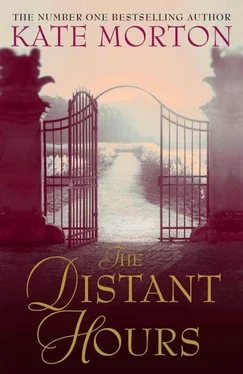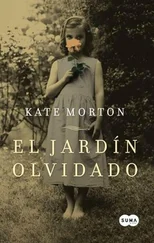‘I’m afraid one of the Blythe sisters isn’t well today,’ said Mrs Bird.
‘Oh?’
‘The youngest has had a turn and the doctor’s on his way out to see her.’
I worked to conceal my disappointment. There was something very unseemly about a show of personal frustration when an old lady had been taken ill. ‘That’s terrible. I hope she’s all right.’
Mrs Bird waved my concern away like a harmless but pesky fly. ‘I’m sure she will be. It’s not the first time. She’s suffered episodes since she was a girl.’
‘Episodes?’
‘Lost time, is what they used to call it. Time she couldn’t account for, usually after she became over-excited. Something to do with an unusual heart rate – too fast or too slow, I can’t remember which, but she used to black out and wake up with no memory of what she’d done.’ Her mouth tightened around some further sentiment she’d thought better of expressing. ‘The older sisters will be too busy looking after her today to be bothered by disturbances, but they were loath to turn you away. The castle needs its visitors, they said. Funny old things – I’m quite surprised, to be honest, they’re ordinarily not keen on guests. I suppose it gets lonely though, just the three of them rattling around inside. They suggested tomorrow instead, mid-morning?’
A flutter of anxiety in my chest. I hadn’t planned to stay, and yet the thought that I might leave without seeing inside the castle brought with it a profound and sudden surge of desolation. Disappointment darkened inside me.
‘We’ve had a cancellation so there’s a room free if you’d like it?’ said Mrs Bird. ‘Dinner’s included.’
I had work to catch up on over the weekend, Herbert needed his car to get to Windsor the following afternoon, and I’m not the sort of person who decides on a whim to stay for a night in a strange place.
‘All right,’ I said. ‘Let’s do it.’
Raymond Blythe’s Milderhurst
While Mrs Bird started on the paperwork, transferring details from my business card, I disengaged myself with a mumble of polite noises and drifted over to peek through the open back door. A courtyard had been formed by the farmhouse wall and those of other farm buildings: a barn, a dovecote, and a third construction with a conical roof that I would later learn to call an oast house. A round pool meditated at the centre and the pair of fat geese had launched themselves across the sun-warmed surface, floating regally now as ripples chased one another towards the flagstone edges. Beyond, a peacock inspected the edge of clipped lawn separating the tended courtyard from a meadow of wild flowers that tumbled towards distant parkland. The whole sunlit garden, framed as it was by the shadowed doorway in which I stood, was like a snapshot of a long-ago spring day, come back somehow to life.
‘Glorious, isn’t it?’ said Mrs Bird, behind me suddenly, though I hadn’t noticed her approach. ‘Have you ever heard of Oliver Sykes?’
I indicated that I hadn’t and she nodded, only too happy to enlighten me: ‘He was an architect, quite well known in his time. Terribly eccentric. He had his own place in Sussex, Pembroke Farm, but he did some work at the castle in the early 1900s, soon after Raymond Blythe married for the first time and brought his wife here from London. It was one of the last jobs Sykes worked on before he disappeared, off on his own version of the Grand Tour. He supervised the creation of a larger version of our circular pool, and did some tremendous work on the moat around the castle: turned it into a rather grand bathing ring for Mrs Blythe. She was a terrific swimmer, they say, very athletic. They used to put…’ She glued a finger to her cheek and wrinkled her forehead. ‘A chemical – oh dear now, what was it?’ She removed the finger and raised her voice. ‘Bird?’
‘Copper sulphate,’ came a disembodied male voice.
I glanced again at the canary, fossicking for seed in his cage, then the picture-hung walls.
‘Yes, yes, of course it was,’ Mrs Bird continued, unfazed, ‘copper sulphate to keep it azure blue.’ A sigh. ‘That was a long time ago now though. Sadly, Sykes’s moat was filled in decades ago, and his grand circular pool belongs only to the geese. Full of dirt and duck mess.’ She handed me a heavy brass key and patted my fingers closed around it. ‘We’ll walk up to the castle tomorrow. The forecast is clear and there’s a beautiful view from the second bridge. Shall we meet here at ten?’
‘You’ve an appointment with the vicar tomorrow morning, dear.’ That patient, wood-panelled voice drifted towards us again, however this time I pinpointed its source. A small door, barely visible, hidden in the wall behind the reception counter.
Mrs Bird pursed her lips and seemed to consider this mysterious amendment before nodding slowly. ‘Bird’s right. Oh now, what a shame.’ She brightened. ‘Never mind. I’ll leave you instructions, finish as quickly as I can in the village, and meet you up at the castle. We’ll only stay an hour. I don’t like to impose any longer: the Misses Blythe are all very old.’
‘An hour sounds perfect.’ I could be on my way home to London by lunchtime.
My room was tiny, a four-poster bed squatting greedily in the centre, a narrow writing desk huddled beneath the leaded window and little besides, but the outlook was glorious. The room was at the back of the farmhouse and the window opened out to look across the same meadow I’d glimpsed through the door downstairs. The second storey, however, offered a better view of the hill that climbed towards the castle, and above the woods I could just pick out the tower’s spire pointing at the sky.
On the desk someone had left a neatly folded plaid picnic blanket and a welcome basket filled with fruit. The day was balmy and the grounds were beautiful, so I picked up a banana, pinned the blanket beneath my arm, and headed straight downstairs again with my new book, Raymond Blythe’s Milderhurst .
In the courtyard, jasmine sugared the air, great white sprays tumbling from the top of a wooden arbour at the side of the lawn. Huge goldfish swam slowly near the surface of the pool, listing their plump bodies backwards and forwards to court the afternoon sun. It was heavenly, but I didn’t stick around; a distant band of trees was calling to me and I wove my way towards it, through the meadow dusted with buttercups, self-sown amidst the long grass. Although it wasn’t quite summer, the day was warm, the air dry, and by the time I’d reached the trees my hairline was laced with perspiration.
I spread the rug in a patch of dappled light and kicked off my shoes. Somewhere nearby a shallow brook chattered over stones and butterflies sailed the breeze. The blanket smelled reassuringly of laundry flakes and squashed leaves, and when I sat down the tall meadow grasses enclosed me so I felt utterly alone.
I leaned Raymond Blythe’s Milderhurst against my bent knees and ran my hand over the cover. It showed a series of black-and-white photos arranged at various angles, as if they’d dropped from someone’s hand and been photographed where they fell. Beautiful children in old-fashioned dresses, long-ago picnics by a shimmering pool, a line of swimmers posing by the moat; the earnest gazes of people for whom capturing images on photographic paper was a type of magic.
I turned to the first page and began to read.
CHAPTER ONE
MAN OF KENT
‘There were those who said the Mud Man had never been born, that he had always been, just as the wind and the trees and the earth; but they were wrong. All living things are born, all living things have a home, and the Mud Man was no different.’
There are some authors for whom the world of fiction presents an opportunity to scale unseen mountains and depict great realms of fantasy. For Raymond Blythe, however, as for few other novelists of his time, home was to prove a faithful, fertile and fundamental inspiration, in his life as in his work. Letters and articles written over the course of his seventy-five years contain a common theme: Raymond Blythe was unequivocally a homebody who found respite, refuge and ultimately religion in the plot of land that for centuries his forebears had called their own. Rarely has a writer’s home been turned so clearly to fictive purpose as in Blythe’s gothic tale for young people, The True History of the Mud Man . Yet even before this milestone work, the castle standing proud upon its fertile rise within the verdant weald of Kent, the arable farmlands, the dark and whispering woods, the pleasure gardens over which the castle gazes still, contrived to make of Raymond Blythe the man he would become.
Читать дальше












